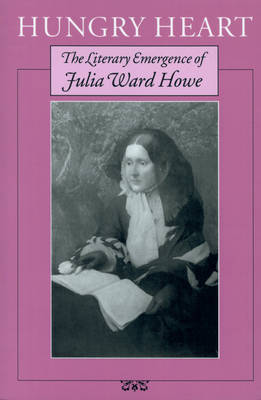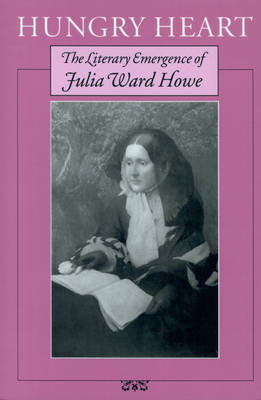
- Afhalen na 1 uur in een winkel met voorraad
- Gratis thuislevering in België vanaf € 30
- Ruim aanbod met 7 miljoen producten
- Afhalen na 1 uur in een winkel met voorraad
- Gratis thuislevering in België vanaf € 30
- Ruim aanbod met 7 miljoen producten
Zoeken
€ 39,45
+ 78 punten
Omschrijving
Hungry Heart reexamines the early literary career of Julia Ward Howe (1819-1910), best remembered as the author of The Battle Hymn of the Republic. Combining biographical narrative with textual analysis, Gary Williams reconstructs Howe's emergence as a writer against the backdrop of her deeply troubled marriage to Boston philanthropist Samuel Gridley Howe. Among her early writings, Williams pays particular attention to Passion-Flowers, a celebrated yet controversial volume of poems published in 1854, as well as to an unpublished 400-page story that features a hermaphrodite as its protagonist. Williams shows how this latter work, startling in its bold exploration of sexual ambiguities, reflects Howe's effort to come to terms with her husband's intimate attachment to the prominent abolitionist Charles Sumner. The result is a fascinating cultural biography that not only enhances Howe's reputation as a writer but also enriches our understanding of the middle-class world of Victorian New England.
Specificaties
Betrokkenen
- Auteur(s):
- Uitgeverij:
Inhoud
- Aantal bladzijden:
- 296
- Taal:
- Engels
Eigenschappen
- Productcode (EAN):
- 9781558498020
- Verschijningsdatum:
- 31/07/2010
- Uitvoering:
- Paperback
- Formaat:
- Trade paperback (VS)
- Afmetingen:
- 152 mm x 229 mm
- Gewicht:
- 426 g

Alleen bij Standaard Boekhandel
+ 78 punten op je klantenkaart van Standaard Boekhandel
Beoordelingen
We publiceren alleen reviews die voldoen aan de voorwaarden voor reviews. Bekijk onze voorwaarden voor reviews.











